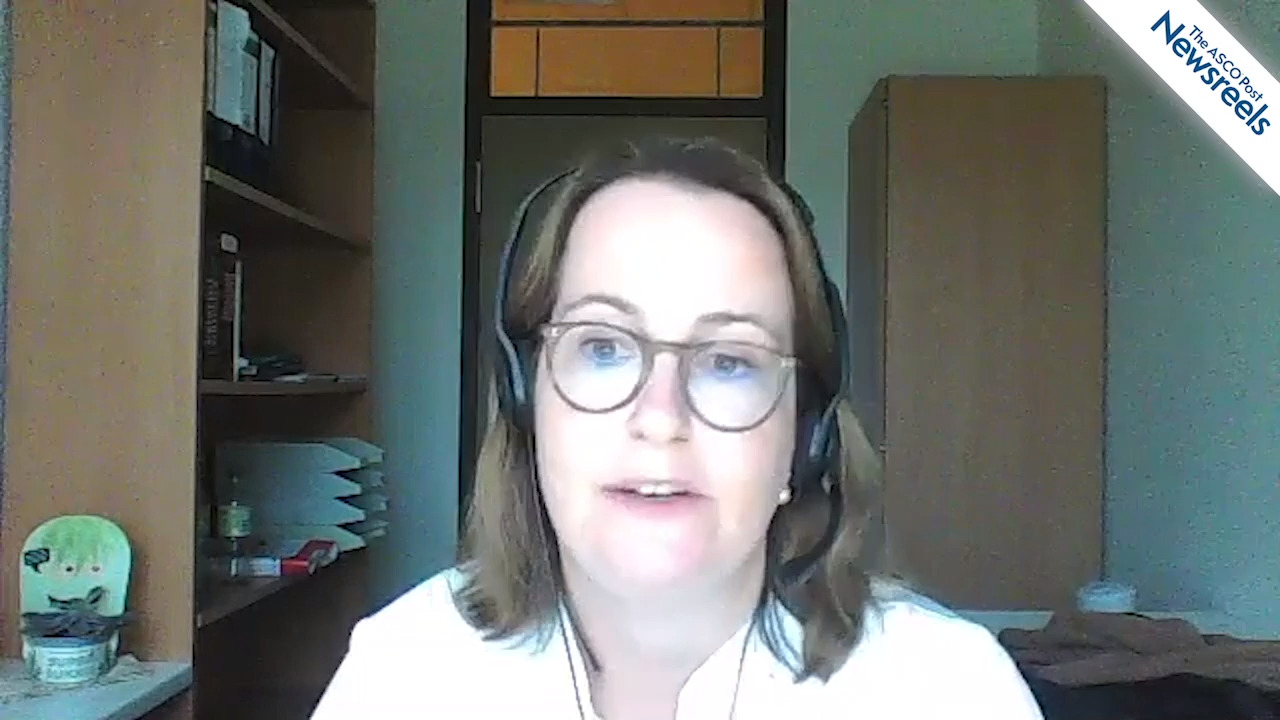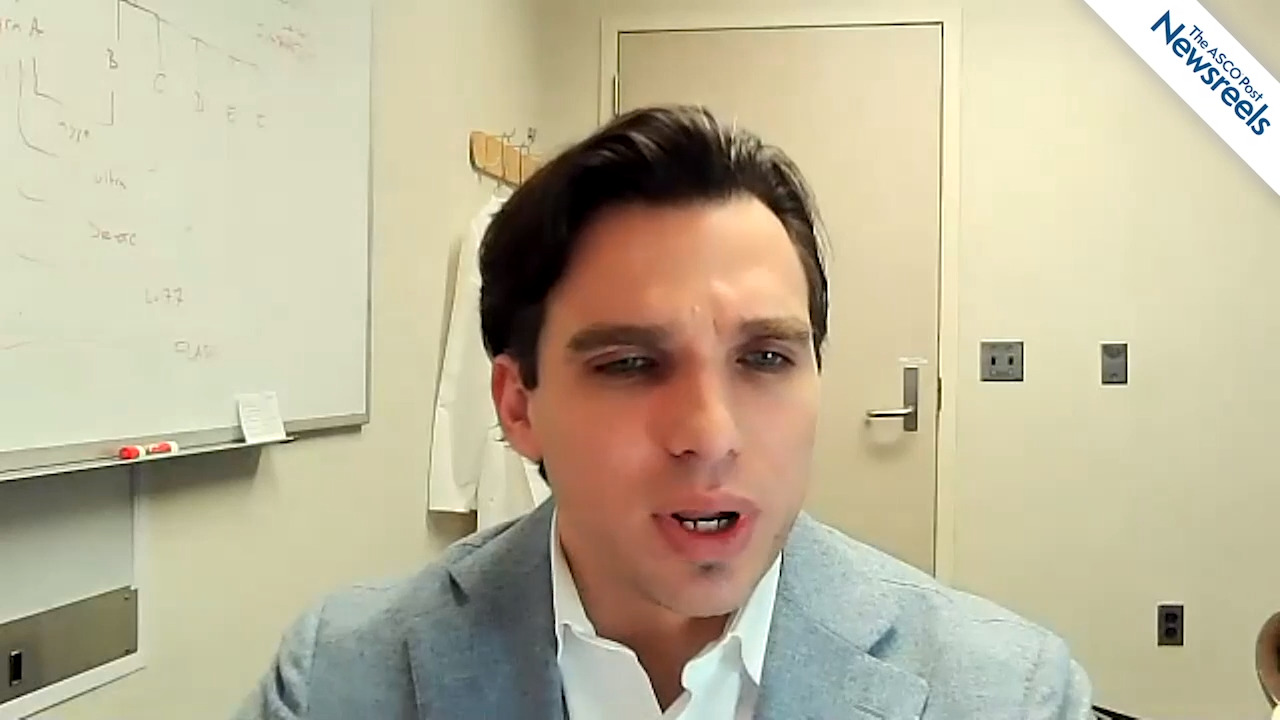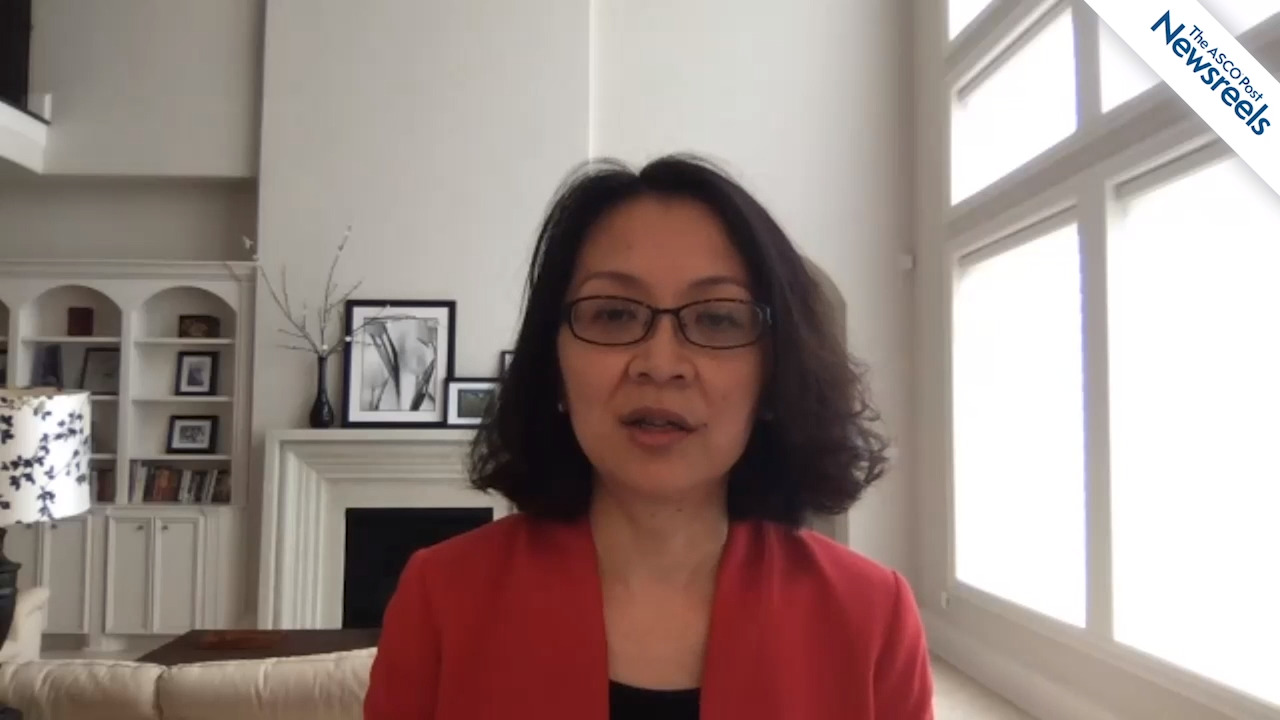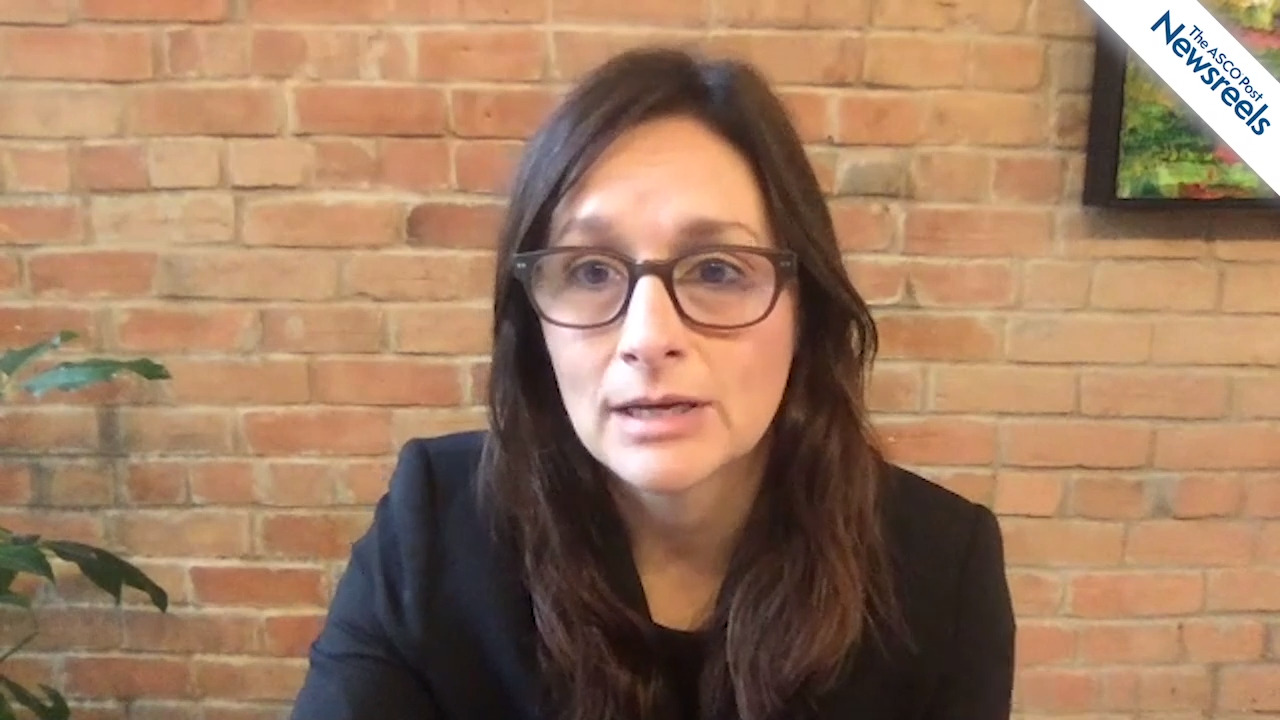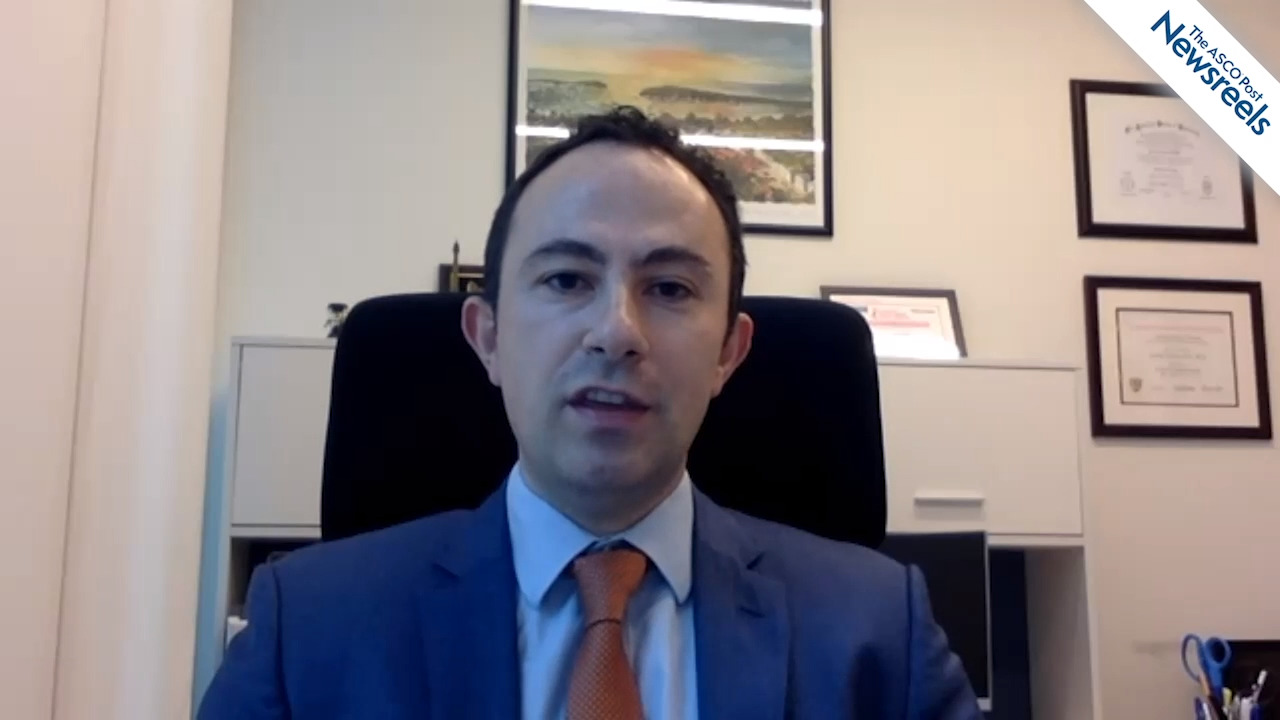Vinai Gondi, MD, on Glioblastoma: Dose Intensification, IMRT, Standard Radiotherapy, and Temozolomide
2020 ASTRO Annual Meeting
Vinai Gondi, MD, of Northwestern Medicine Cancer Center and Northwestern Medicine Proton Center, discusses the preliminary results of an NRG Oncology study of radiotherapy dose intensification using intensity-modulated radiotherapy vs standard-dose radiotherapy with temozolomide in patients with newly diagnosed glioblastoma (Abstract 42).
Juliane Hörner-Rieber, MD, of Heidelberg University Hospital, discusses phase III results of the MINT trial, which showed that conventionally fractionated intensity-modulated radiotherapy with a simultaneous integrated boost was noninferior to three-dimensional conformal radiotherapy followed by a sequential boost for both local control and cosmesis in patients with breast cancer (Abstract 19).
The ASCO Post Staff
Daniel E. Spratt, MD, of the University of Michigan Rogel Cancer Center, discusses phase III results of the HERO trial, which suggested benefits of the oral medication relugolix: a substantially faster time to castration with longer duration, fewer cardiac events, and a faster return to normal testosterone levels compared with leuroplide (Abstract 35).
The ASCO Post Staff
Jing Li, MD, PhD, of The University of Texas MD Anderson Cancer Center, discusses phase III results showing the use of stereotactic radiosurgery in patients with 4 to 15 brain metastases, compared with whole-brain radiotherapy, may better preserve cognitive function and minimize the interruption of systemic therapy without compromising overall survival (Abstract 41).
The ASCO Post Staff
Cynthia Menard, MD, of the University of Montreal, discusses a study on the use of prostate-specific membrane antigen PET and CT to guide treatment. The scans led to high rates of new lesion detection and therefore intensification of radiotherapy for patients with prostate cancer, without an increase in side effects (Abstract 34).
The ASCO Post Staff
Youssef Zeidan, MD, PhD, of the American University of Beirut Medical Center, discusses study findings showing that breast-conserving surgery, whole-breast irradiation, and trastuzumab offer effective local tumor control for patients with HER2-positive breast cancer. An additional radiation boost does not seem to further improve outcomes (Abstract 52).
